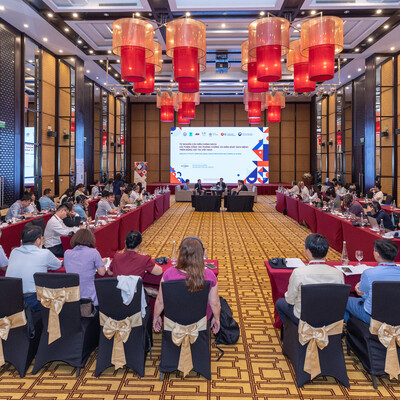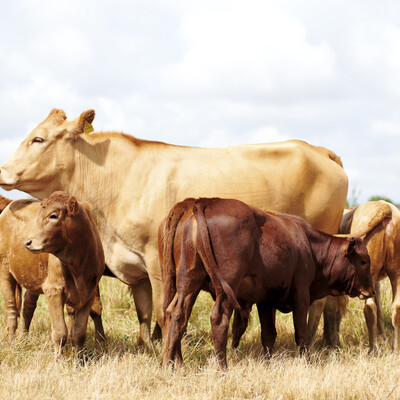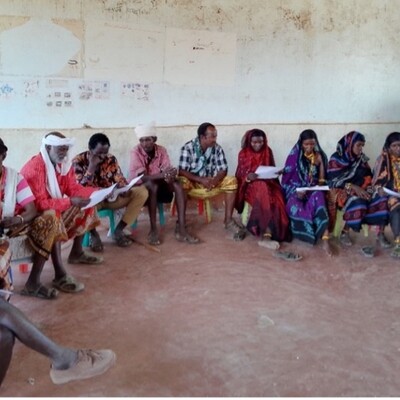
COVID-19 and livestock development in Ethiopia: Enhancing national responses
Ethiopia has the largest livestock population in Africa, which is a vital part of the life of its people. More than 80% of the country’s population depends on the sector for income, employment, and food and nutrition among other benefits.
Since mid-March 2020, the sector’s development has been impacted by the COVID-19 pandemic and the prevention measures introduced to control the spread of the disease such as movement restriction. Until recently, the impact of COVID-19 on the livestock sector in the country has largely not been quantified.
On 30 Sep 2020, a webinar on ‘Enhancing national responses on effects of COVID-19 on livestock development’ reviewed the effects of COVID-19 on the livestock sector in Ethiopia. The event was a first virtual seminar of the Ethiopian Society of Animal Production (ESAP) platform and was hosted by the International Livestock Research Institute (ILRI). Various stakeholders including animal scientists, researchers, policymakers and members of the private sector participated in the seminar, which also sought to identify the way forward for the sector post-COVID-19.
Fikru Regassa, Ethiopia’s state minister for agriculture, opened the webinar by emphasizing the need to quantify the impact of the disease and its containment measures on livestock production and productivity and to find ways to lessen its negatives impacts on livestock production.
To give participants a glimpse of the impact COVID-19 has had on the livestock sector so far, the results of a rapid assessment in Ejere and Wolmera districts were presented by the Ethiopian Institute of Agricultural Research (EIAR). The findings showed that the COVID-19 pandemic has:
- reduced availability of livestock feed due to movement restriction and closure of feed factories,
- led to a more than 20% hike in the price of animal feed,
- decreased the use of artificial insemination and veterinary services,
- decreased the supply of veterinary drugs and increased their cost by 15–20%,
- reduced the amount of milk produced in the country,
- lowered the prices of dairy products such as raw milk (by 21 %), butter (by 16%) and local cheese (by 127%),
- reduced the supply and demand for beef animals, and
- disrupted the livestock extension system because extension personnel are unable to visit and train farmers, and provide artificial insemination and veterinary services.
At the meeting, the ILRI director general’s representative in Ethiopia, Siboniso Moyo, shared how the livestock sector in other African countries has been affected by the pandemic. Her presentation was based on outputs from the Global Agenda for Sustainable Livestock (GASL) Africa 1 regional online multi-stakeholder partners meeting that was held 2–3 Sep 2020.
She shared both the negative and positive impacts COVID-19 on the livestock sector in Africa. The negative impacts include reduced producer income, higher cost of inputs, and reduced demand and consumption for animal-source food resulting in human nutrition deficiency. On the other hand, the pandemic has resulted in positive impacts including reduced importation of animal products, use of digital solutions to reach producers and consumers, re-invention of business and organizational models and use of the One Health approach in the sector.
During the webinar discussion, the following COVID-19 response options were proposed for Ethiopia’s livestock sector:
- carrying out seasonal COVID-19 impact assessments in all livestock subsectors,
- putting in place interventions or measures to reduce the impact of the pandemic on the sector,
- supporting domestic economic activities by providing basic services and facilities such as animal feed and veterinary services, and
- establishing an institute for risk management to protect farmers against price shocks.
Yosef Tadesse, deputy director general of Ethiopia’s Meat and Dairy Technology Institute, closed the webinar with a call on stakeholders in the sector and partners to support the government’s response strategy to reduce the impact of the pandemic on the sector.
Established 30 years ago, ESAP is a professional platform and knowledge hub with more than 1,000 members who include animal scientists, researchers, policymakers, producers and academia.
Photo credit: Cattle being watered at the Ghibe river in southwestern Ethiopia (ILRI/Stevie Mann)















